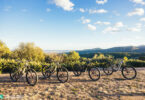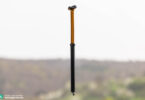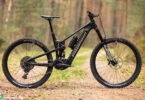In last year’s group test, the Specialized Kenevo was crowned Best in Test. That meant we were all the more excited to see how its completely redesigned successor would fare on the trails. Is the Specialized Kenevo Comp still a great all-rounder or is it too radical?
Click here for an overview of the best budget eMTB
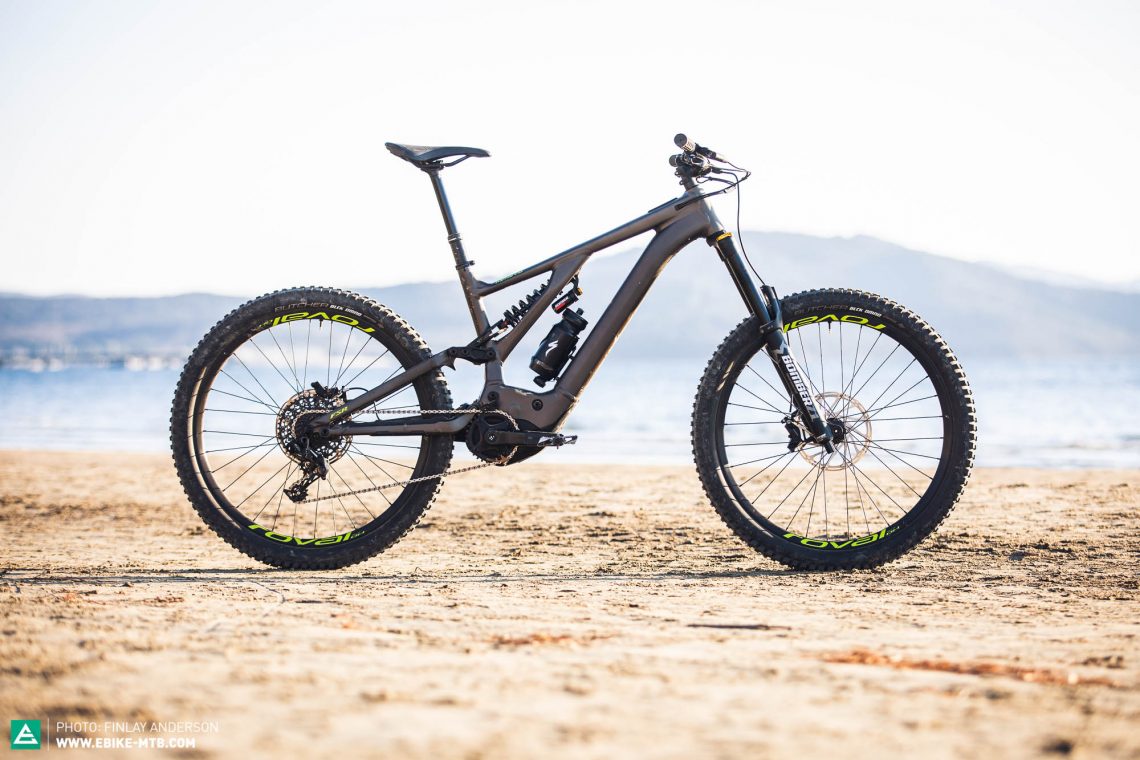
23.08 kg in size S4 | € 5,499 | manfacturer website
The extremely long frame (495 mm reach in L) of the Specialized Kenevo Comp with its coil shock makes no secret of its bent for fast and rough descents. Surprisingly, the € 5,499 Comp model is significantly lighter than the more expensive Kenevo Expert, weighing in at 23.08 kg. At first glance, this might be attributed to the fact that the Specialized Comp doesn’t have a double-crown fork, but there’s actually a much bigger weight-saving hidden in the downtube of the aluminium frame. Instead of a 700 Wh battery, this model is equipped with a 600 g lighter 500 Wh version, which powers Specialized’s 2.1 motor. The motor, like the speed sensor and TCU module in the top tube, is perfectly integrated into the frame. For the suspension, Specialized rely on an air-sprung Marzocchi Bomber Z1 fork and a Marzocchi Bomber CR coil shock at the rear, each of which provides 180 mm travel. The 27.5” aluminium wheels, 2.6” wide Butcher and Eliminator tires with the robust BLCK DMND casing and cockpit all come from Specialized or its in-house brand Roval. A set of SRAM Code R brakes with 200 mm rotors do stopping duties. While it’s one of the best brakes on test, it couldn’t totally convince us on the Kenevo, but more on that later. For the drivetrain, Specialized rely on an antiquated SRAM NX 11-speed groupset, offering a small range of gears.
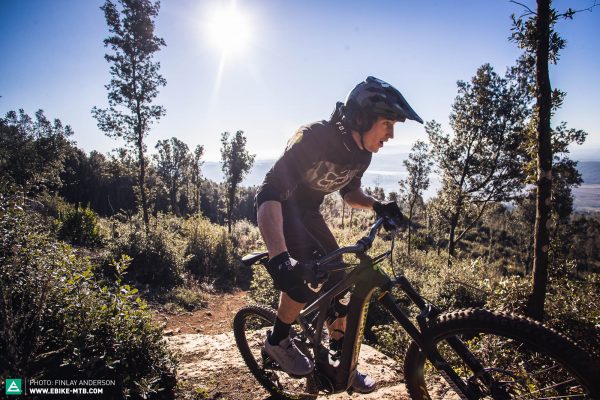
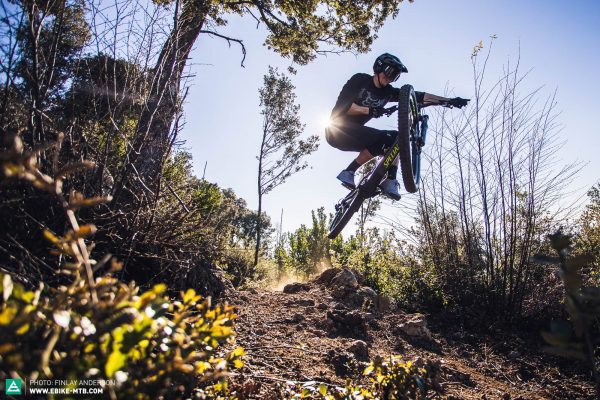
Specialized Kenevo Comp
€ 5,499
Specifications
Motor Specialized 2.1 90 Nm
Battery Specialized M2-500 500 Wh
Display Specialized TCU
Fork Marzzochi Bomber Z1 180 mm
Rear Shock Marzzochi Bomber CR 180 mm
Seatpost X-Fushion Manic 150 mm
Brakes SRAM Code R 200/200 mm
Drivetrain SRAM NX 1x11
Stem Specialized Trail 45 mm
Handlebar Specialized Alloy 800 mm
Wheelset Roval Alloy DH 27.5"
Tires Specialized Butcher BLCK DMND 2.6"
Technical Data
Size S2, S3, S4, S5
Weight 23.08 kg
Perm. total weight 160 kg
Max. payload (rider/equipment) 136 kg
Trailer approval no
Kickstand mount no
Specific Features
fully functional even without cockpit remote
individual motor-setup
integrated multi tool
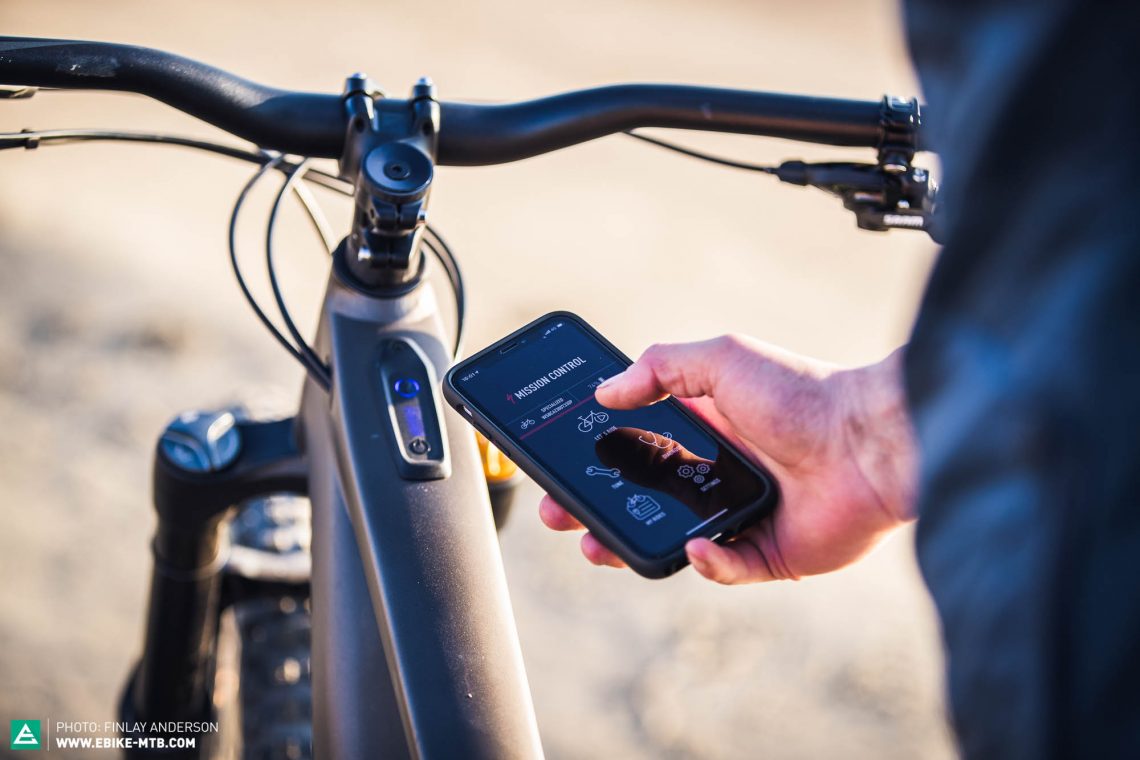
In addition to the three standard support modes, you can activate Shuttle Mode in the Mission Control app. Once activated, the Kenevo will push you up service roads without having to exert yourself at all: just like a shuttle.
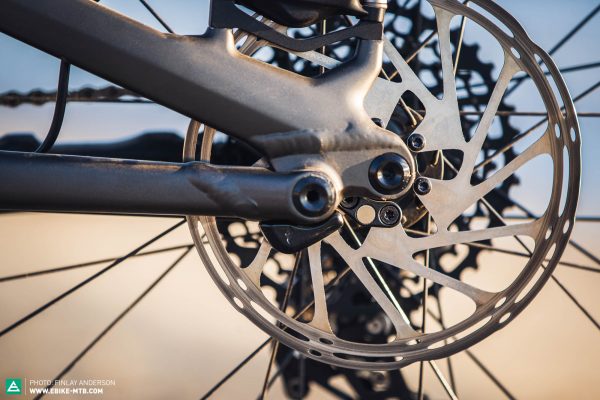
The speed sensor is well concealed in the chainstay and the magnet is securely attached to the brake rotor.
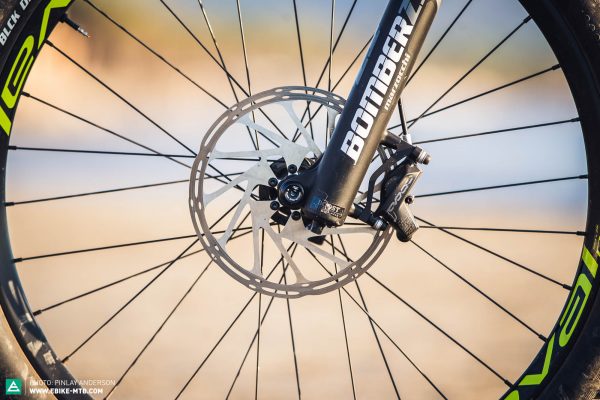
The SRAM Code R brakes are more powerful than many of the other brakes on test. But, considering the speeds that the Kenevo is capable of, you need all the braking power you can get. Ideally, you’d want a 220 mm rotor up front.
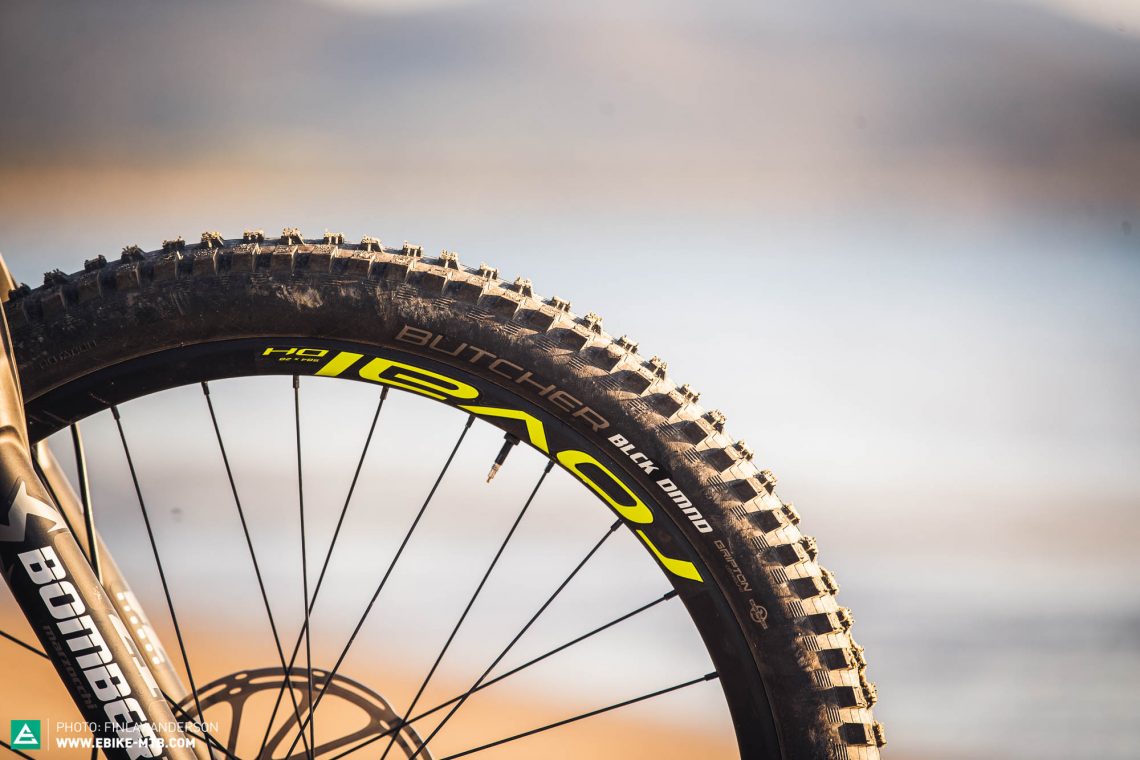
Specialized and CUBE are the only two brands on test to spec appropriately robust and puncture resistant tires. The revised Butcher on the front of the Kenevo and the Purgatory on the rear both feature the BLCK DMND casing.
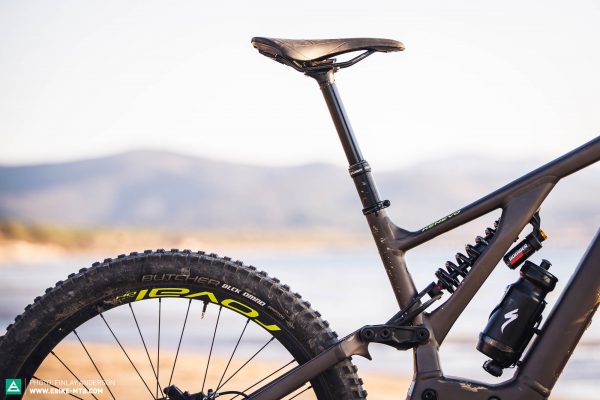
The seat tube angle on the Kenevo is super steep, positioning the rider centrally on the bike no matter how steep the climbs.
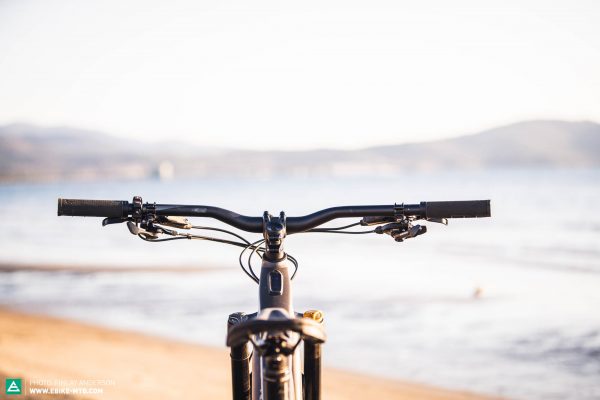
With the minimalist remote and the absence of a display, the cockpit of the Kenevo is super clean and intuitive to use.
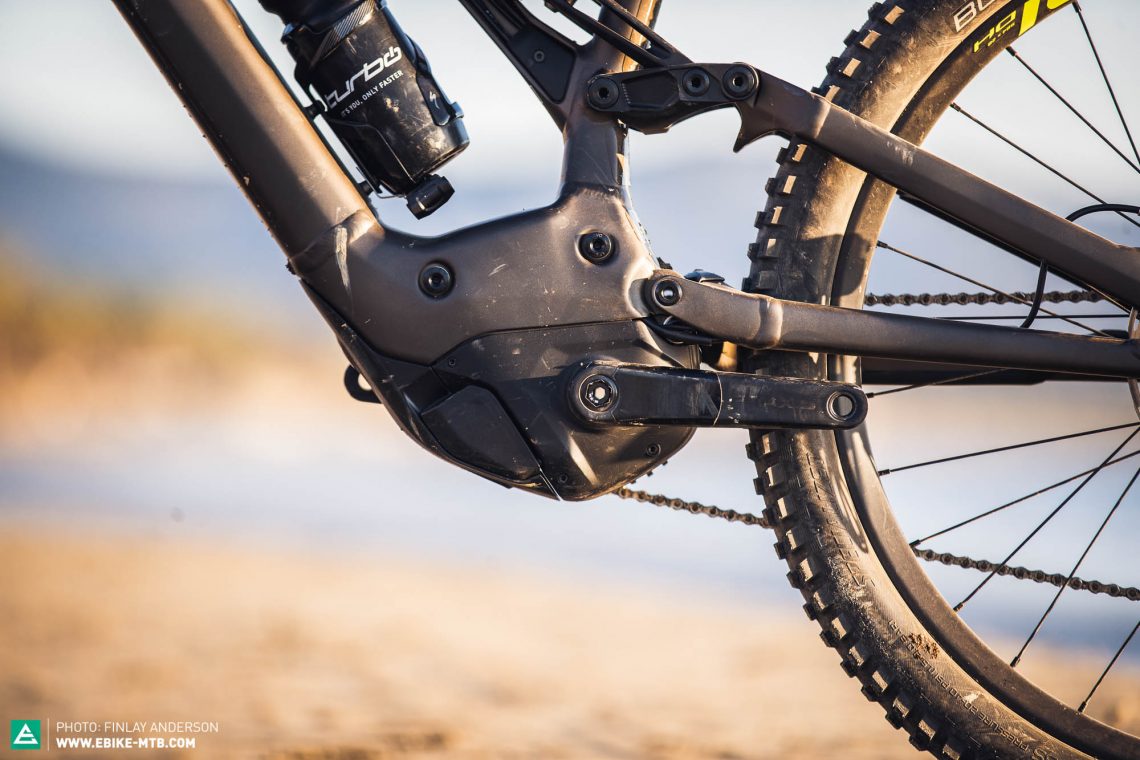
Specialized is the only brand on test that doesn’t rely on Bosch for their motor. The Kenevo is equipped with Specialized’s 2.1 motor, based on the Brose Drive S Mag, and produces 90 Nm torque.
Geometry of the Specialized Kenevo
While developing the Kenevo, Specialized made every effort to keep the seat tube as short as possible. By doing so, customers aren’t unnecessarily restricted when choosing the frame size. The S4 Kenevo that we tested is the second largest size available and at 440 mm it’s got the shortest seat tube on test. This allows even the smallest of riders to choose between at least two frame sizes: smaller for more agility and larger for more composure at high speeds.
The Kenevo instils you with so much confidence at high speeds that it makes you feel invincible!
| Size | S2 | S3 | S5 | S5 |
|---|---|---|---|---|
| Seat tube | 400 mm | 420 mm | 440 mm | 465 mm |
| Top tube | 585 mm | 612 mm | 639 mm | 666 mm |
| Head tube | 105 mm | 115 mm | 125 mm | 135 mm |
| Head angle | 64.0° | 64.0° | 64.0° | 64.0° |
| Seat angle | 77.0° | 77.0° | 77.0° | 77.0° |
| Chainstays | 454 mm | 454 mm | 454 mm | 454 mm |
| BB Drop | 14 mm | 14 mm | 14 mm | 14 mm |
| Wheelbase | 1,234 mm | 1,263 mm | 1,293 mm | 1,322 mm |
| Reach | 445 mm | 470 mm | 495 mm | 520 mm |
| Stack | 605 mm | 614 mm | 623 mm | 632 mm |
Specialized Kenevo Comp on test
With a super steep 77° seat tube angle, the Kenevo positions the rider centrally on the bike. While this riding position puts a lot of weight on your hands and can become uncomfortable on flat terrain, it is nicely balanced on climbs. Specialized’s 2.1 motor puts out 90 Nm torque, which is noticeably more powerful than the Bosch motors on test. Yet, in its stock settings, the assistance on the Kenevo feels natural and easy to control. The Kenevo has another ace up its sleeve for transfers and climbs on forest roads: Shuttle Mode. You’ll have to activate it via the Mission Control app. This done, the motor will push you up even the steepest climbs without you having to break a sweat. However, Shuttle Mode isn’t suitable for tight trails considering the bikes’ sluggish handling. In general, the Kenevo prefers getting up technical climbs with momentum, especially as SRAM’s 11-speed NX drivetrain doesn’t have an easy enough gear to slowly winch yourself up.
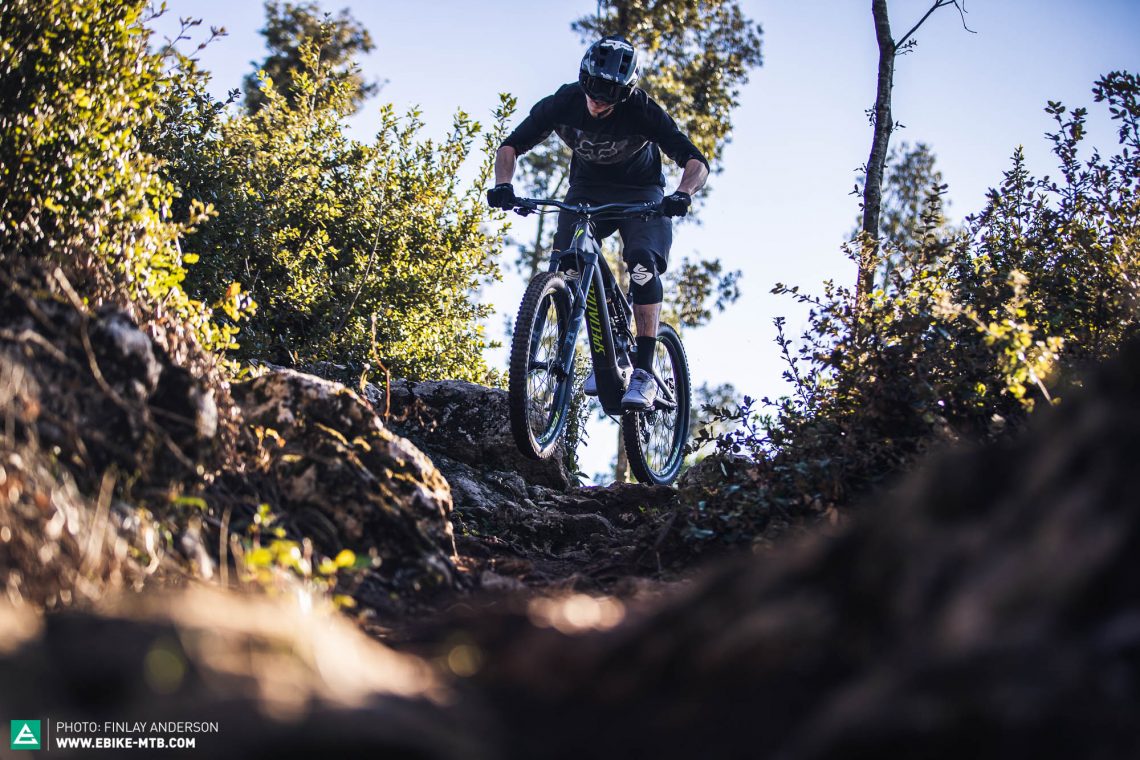
No other bike on test succeeds at integrating the entire ebike system from the motor and the battery to the app and display as well as the Specialized Kenevo.
The only way the Kenevo knows to go downhill is at full speed! With 180 mm travel, the coil shock on the rear responds very sensitively, yet the suspension feels sufficiently defined. It absorbs rough terrain and big hits with ease, begging you to go harder and faster. It prefers doing so with the help of gravity and by following the fall line, making even the steepest chutes and roughest rock gardens feel tame. The Kenevo instils you with so much confidence at high speed that you feel almost invincible! But, with that much speed, you need even more stopping power and we would have wished for an even stronger set of brakes. You’ll also have to be careful on narrow and winding trails with the bike’s extreme geometry. Here, you have to actively weight the front wheel to generate enough grip and keep the Kenevo on track. Flow trails also demand a lot of physical effort if you want to pump the bike through rollers or quickly change direction since the suspension absorbs a lot of the rider’s input. However, it’s exactly this that puts it in a league of its own on high-speed downhill tracks. Experienced and aggressive riders will benefit from this the most while beginners are advised to choose the smaller frame size.
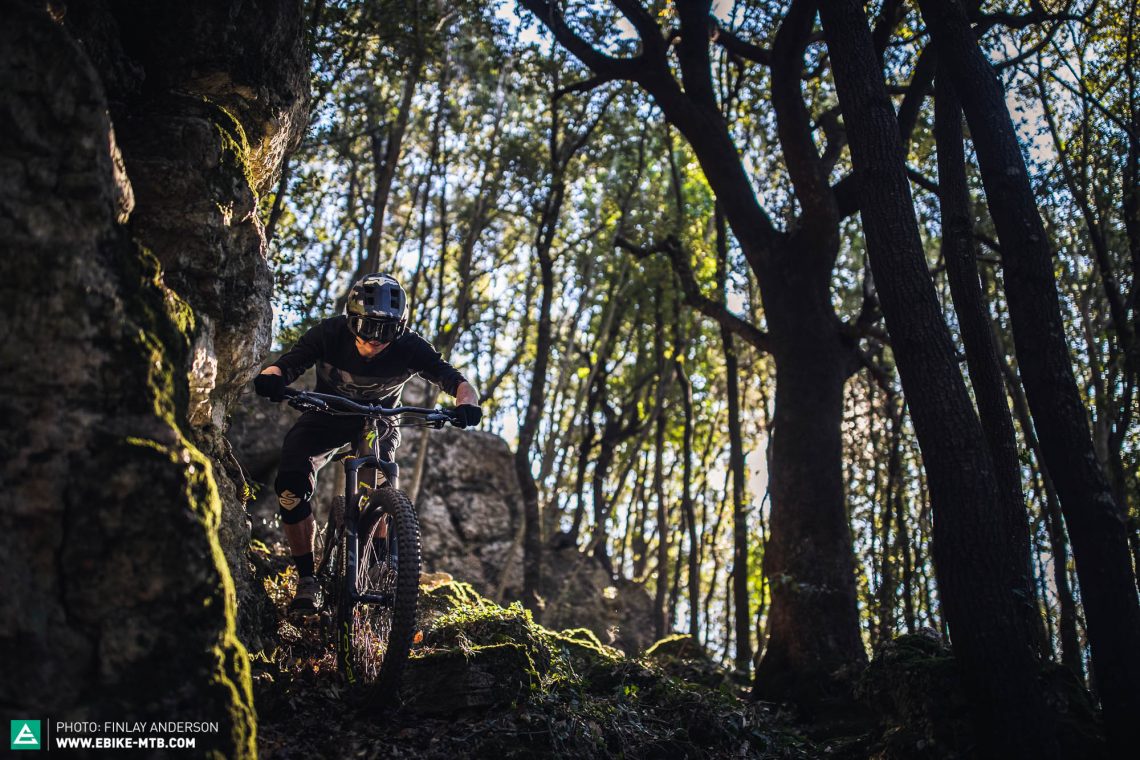
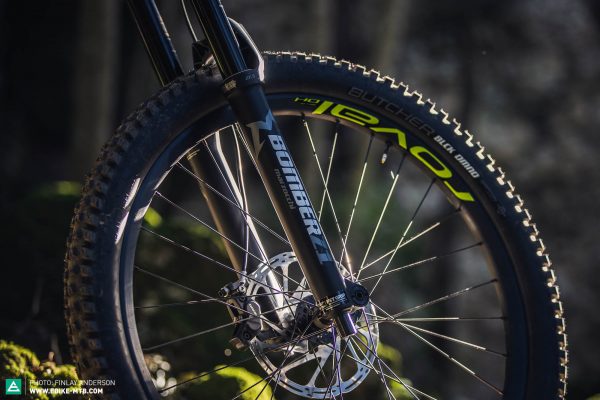
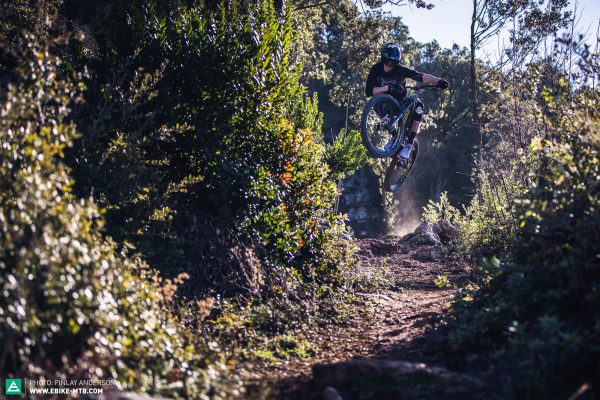
Tuning tips: 220 mm brake rotor for maximum braking power
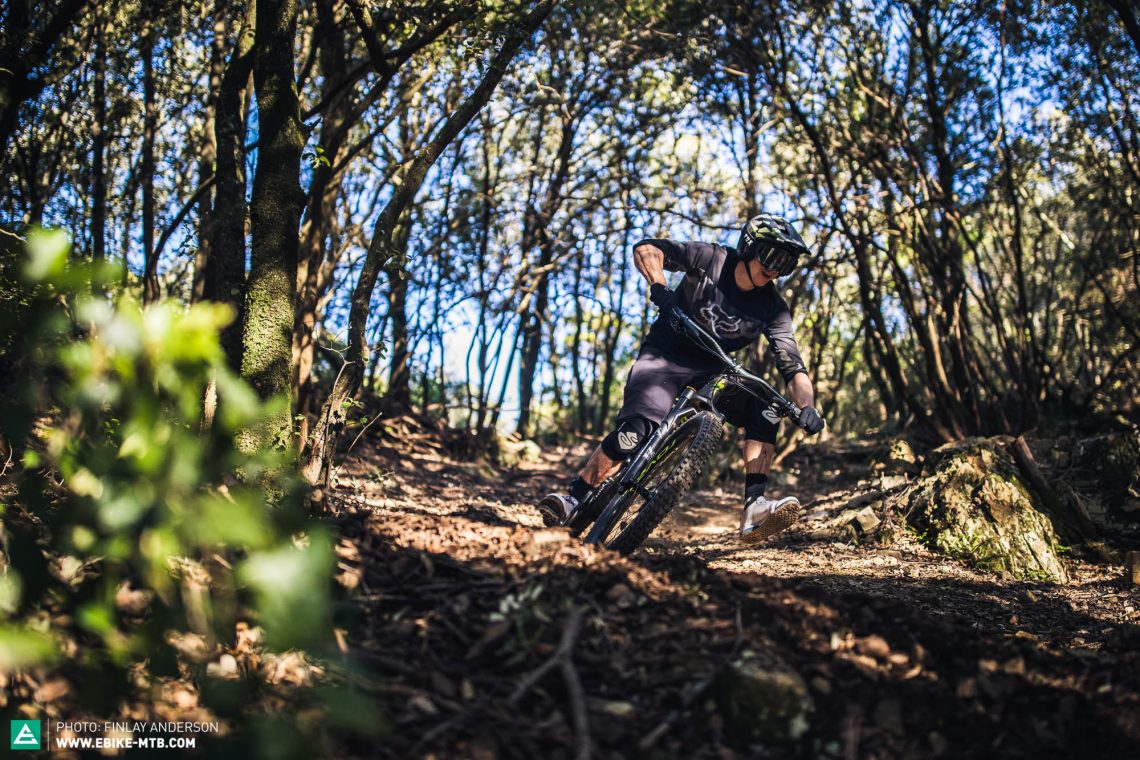
Riding Characteristics
7Agility
- sluggish
- playful
Stability
- nervous
- stable
Handling
- demanding
- balanced
Riding fun
- boring
- lively
Motor feeling
- digital
- natural
Motor power
- weak
- strong
Value for money
- poor
- top
Conclusion of the Specialized Kenevo Comp
The latest generation Kenevo isn’t as versatile as its predecessor. Due to its progressive geometry, it’s designed for a much more specific type of rider and terrain than the other bikes on test. The Specialized Kenevo Comp only comes to life on high-speed descents where the competition will have already reached its limits. As we’ve come to expect from Specialised, the integration of the motor, the app and the attention to detail on the frame are second to none.
Tops
- no limits on the descents
- excellent motor integration
- performance-oriented spec
Flops
- 11-speed drivetrain
- not enough braking power for this bike's capabilities
- demanding on flat trails
For more information head to specialized.com
The test field
Click here for an overview of the best budget eMTB
All bikes in review: CENTURION No Pogo E R2600i (Click for review) | CUBE Stereo Hybrid 140 HPC (Click for review) | Haibike XDURO AllMtn 3.0 (Click for review) | Moustache Samedi 29 Game 4 (Click for review) | RADON RENDER 10.0 (Click for review) | Scott Genius eRIDE 920 (Click for review) | Specialized Kenevo Comp | Trek Rail 7 EU (Click for review)
Relaxed and comfortable riding on surfaced roads, both uphill and downhill.↩
Easy climbs up trails with few obstacles, wide turns and a moderate incline.↩
Active and playful descents on easy trails with few obstacles, wide turns and a moderate slope.↩
Single-track climbs on challenging terrain. Loose ground, steps, roots, tight corners and occasionally extreme inclines.↩
Singletrack descents on challenging terrain. Loose ground, steps, roots, tight corners and small jumps as well as some very steep descents.↩
High speed descents on sometimes very rough trails with large jumps and obstacles that you can’t roll over.↩
The rating used for riding characteristics refers to the bikes in the group test and the current state of development of eMTBs. The best bikes managed to blend supposedly opposite riding characteristics, feeling both lively and stable at the same time. The handling describes the balance of the bike on downhill sections. The information regarding motor-power refers to the ride-feeling in the overall context of the bike and not exclusively to the motor – that’s why the same motor can present different values.↩
Did you enjoy this article? If so, we would be stoked if you decide to support us with a monthly contribution. By becoming a supporter of E-MOUNTAINBIKE, you will help secure a sustainable future for high-quality cycling journalism. Click here to learn more.
Words: Photos: Finlay Anderson




